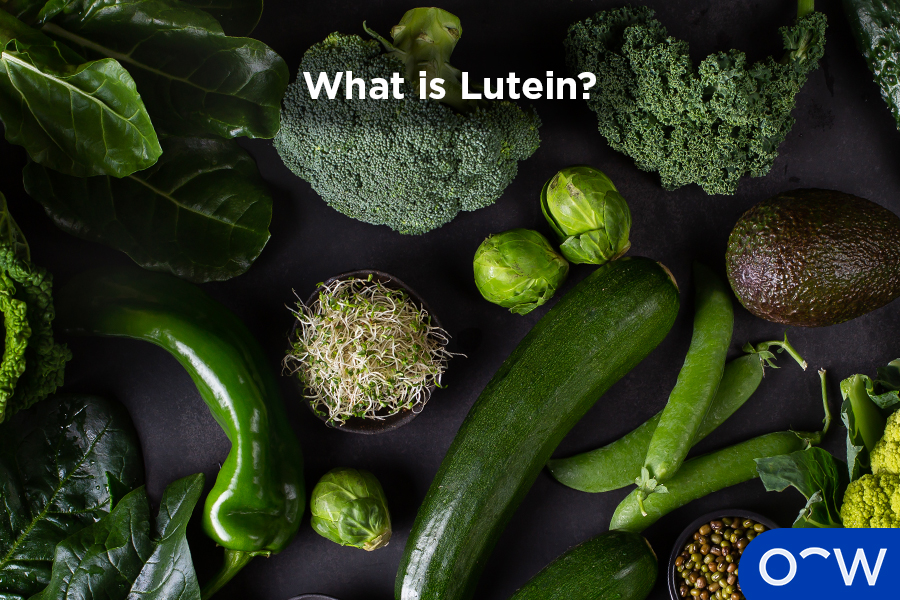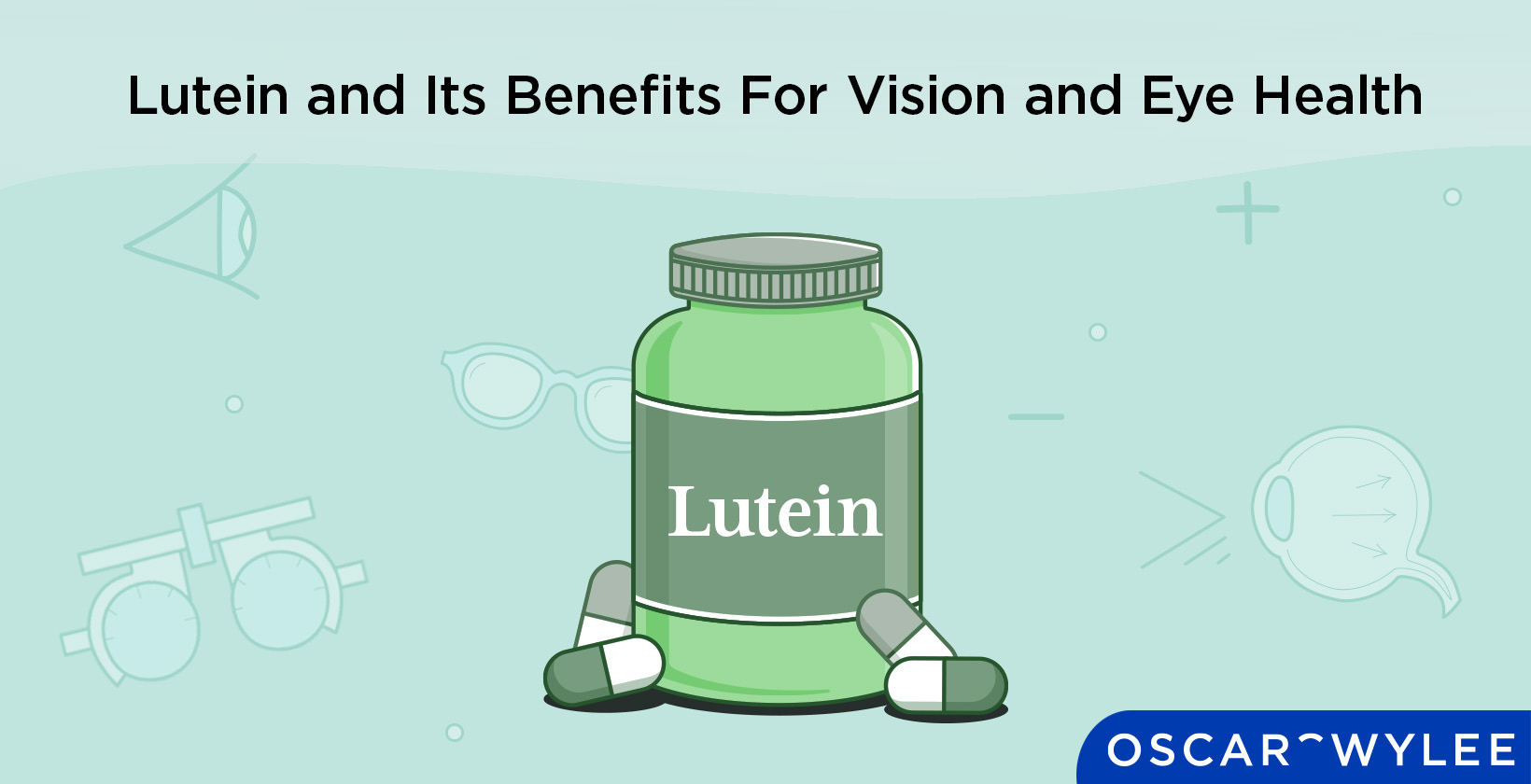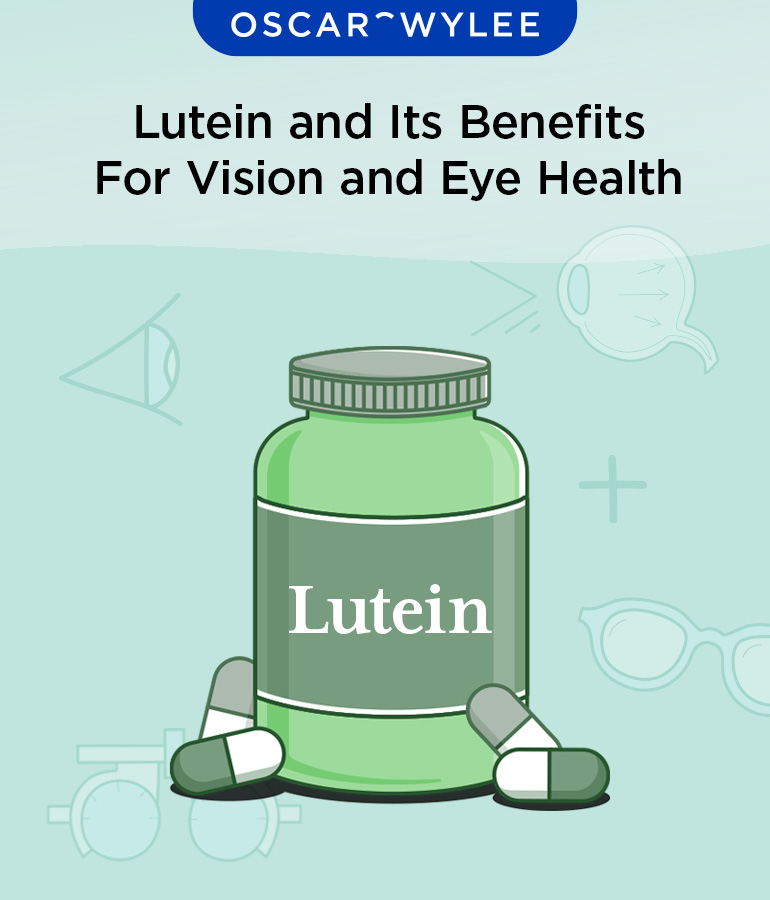Lutein and Its Benefits For Vision and Eye Health
Published on July 16th, 2024
Lutein is a type of carotenoid, found in foods such as egg, corn, grapes, and green, leafy vegetables. Lutein is not made in the human body and must be consumed via these foods in a healthy and balanced diet. Lutein is hugely beneficial for health, including eye health as it acts as an antioxidant in the body. The benefits of lutein for eye health include reducing free radicals, protecting against oxidative stress, protecting the eye from UV and helping to prevent age-related eye conditions such as cataracts and age-related macular degeneration.
What is Lutein?
Lutein is a type of fat-soluble carotenoid, naturally occurring in foods such as egg yolks, corn, grapes, zucchini and green, leafy vegetables such as spinach and kale. Carotenoids are yellow, red and orange pigments found in plants. Carotenoids such as lutein are not produced by the human body and must be consumed as part of a balanced and healthy diet. Lutein acts as an antioxidant in the human body, helping to boost general health, including eye health.


What are the Benefits of Lutein for Vision and Eye Health?
There are many benefits of lutein for vision and eye health including helping to prevent oxidative stress, fighting free radicals, protecting the eye from UV rays, and serving as an anti-inflammatory agent. Lutein can also benefit vision and eye health by protecting the retina from the effects of ageing which in turn can help prevent age-related eye conditions such as cataracts and macular degeneration, according to the University of Rochester Medical Centre.
How Does Lutein Help with Age-related Macular Degeneration (AMD)?
Lutein has been theorised to help with preventing age-related macular degeneration (AMD). According to a paper by Mrowicka, Mrowicki, Kucharska and Majsterek, one of the major benefits of lutein is it helps protect the eye by reducing oxidative stress and fighting free radicals. These protective measures can help to maintain macular structure and function. This in turn, helps to prevent age-related eye diseases such as age-related macular degeneration (AMD), according to Feng, Nie, Jiang and Fan in the paper, Effects of lutein supplementation in age-related macular degeneration.
Are Lutein and Zeaxanthin the Same?
Lutein and zeaxanthin are similar in that they are both two types of fat-soluble carotenoids. According to the Bright Focus Organisation, lutein and zeaxanthin are both micronutrients structurally related to Vitamin A. When consumed, Lutein and Zeaxanthin are transported to the retina.
What Foods are Good Sources of Lutein?
The foods that are a good source of lutein include eggs, capsicum, corn, grapes and leafy greens such as kale, spinach and broccoli. Most people will be able to consume the amount of lutein they need through eating these foods as part of a balanced and healthy diet. According to the NHS, the average Western diet is reported to contain an average of 3mg of lutein a day.


How Much Lutein Does a Person Need?
Several studies have shown that 10mg of lutein a day is a good amount of lutein for the average person to consume, according to the NHS. Most people with a healthy and balanced diet will be able to get all the lutein the body needs from fruit and vegetables such as eggs, corn, grapes, capsicum, spinach, kale and broccoli. A person can take lutein supplements, which range in dosage from 5mg to 40mg. It is recommended that a person consults with a doctor before taking any supplements.
Are There Side Effects of Lutein?
There are very few side effects of taking lutein as a supplement. According to a study by Buscemi, Corleo, Di Pace, Petroni, Satriano and Marchesini called The Effect of Lutein on Eye and Extra-Eye Health, one reported side effect of extended lutein intake, 15mg a day for 20 weeks, caused skin yellowing in some patients.
Is Lutein Safe for Pregnant or Breastfeeding People?
Lutein that occurs naturally in foods is generally safe for pregnant people or those that are breastfeeding, as part of a balanced and healthy diet. Lutein in supplement form may not be suitable for pregnant people. It is recommended that those who are pregnant check with their doctor before taking any supplements.
What Other Nutrients Are Beneficial for Eye Health?
There are several other nutrients that can be beneficial for eye health including vitamin A, vitamin C, vitamin E, vitamin B, zinc and omega-3 fatty acids. The other nutrients that can be beneficial for eye health are listed below.
- Vitamin A: Vitamin A is beneficial for the eye as it helps protect the conjunctiva and cornea, according to Health Direct. Vitamin A can be found in eggs, dairy, orange vegetables and fruits.
- Vitamin C: Vitamin C can be beneficial to eye health as it may help to prevent or slow the progression of age-related macular degeneration (AMD) and cataracts. Vitamin C is found in food such as oranges, strawberries and broccoli.
- Vitamin E: Vitamin E can be beneficial for eye health as it is an antioxidant that can help protect the eye from free radicals. Free radicals may harm tissues and structures in the eye.
- Vitamin B: Vitamin B can be beneficial to eye health as it may help in preventing or slowing age-related macular degeneration (AMD). Vitamin B or B vitamins refer to a group of water-soluble vitamins and include B6, B9, and B12.
- Zinc: Zinc is a type of mineral that can be beneficial to eye health as it can help to maintain retina function and possibly prevent the progression of age-related macular degeneration (AMD).
- Omega 3 Fatty Acids: Omega-3 fatty acids are a type of healthy fat that can be beneficial to eye health as they may help relieve symptoms of dry eye disease and lower the risk of developing glaucoma and age-related macular degeneration (AMD).



